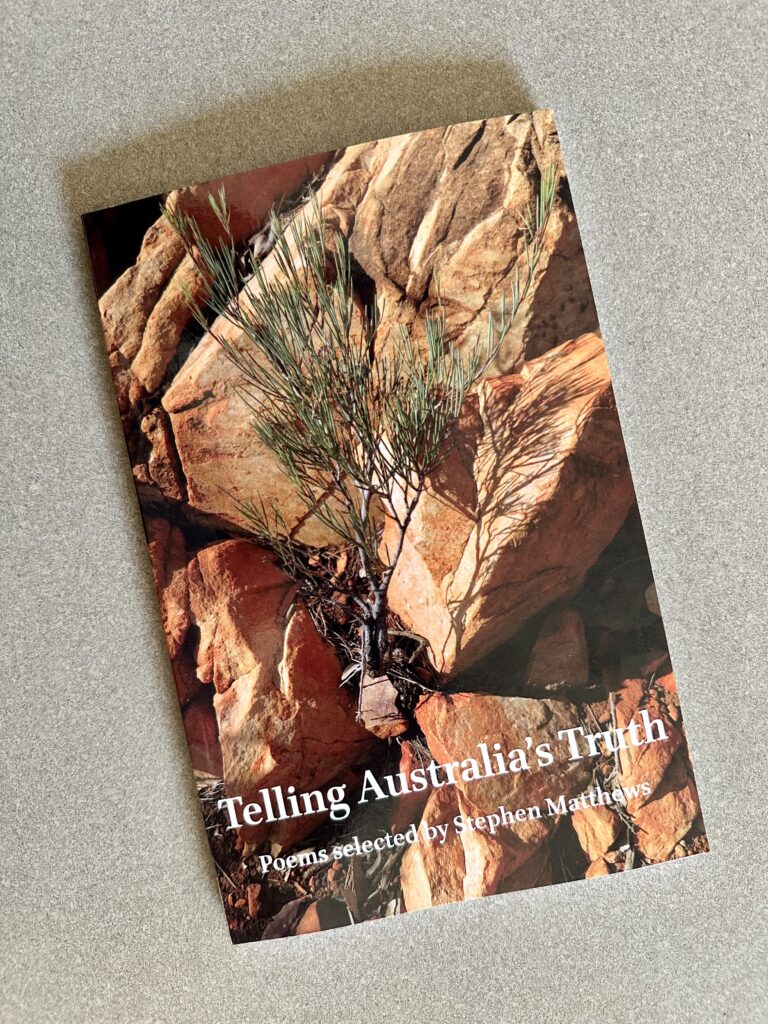It’s an honour to have a poem selected for this anthology, hot off the press from Ginninderra Press (the publisher of ‘A Voice for Veronica’).
This collection had its beginnings in the shame, sadness and disbelief that was felt by so many after the result of the Voice referendum in 2023. The poems passionately express those reactions and unflinchingly explore some of the truths about Australia and its history, that, if they had been widely known, might have led to a different result. It is hoped that the readers will find solace, inspiration and hope in the pages that follow. Stephen Matthews, editor.
My poem, ‘Four Generations’, reflects my perspective on generational legacy and where I sit in history. I leave my beautiful and very smart grandchildren a mix of hope and sadness.

Four Generations
You were my gentle grandad
I was spoilt and loved, the first female of your line
Quietly spoken grower of delicate gladioli
You named one after me
Companioned by your loyal springer spaniel
But never told me about Fromelles
The horror of your war
Just grew sweet strawberries.
You were my upright father
Brilliant but Depression deprived
Lived for service and duty
Pressured night study late in life broke your health
I think you loved me.
I am still living and loved; married
Have played, planted and bought houses
Studied, travelled, written books and made music
Flourished in my female way
Gathered my grandchildren around me
Some say I am a lucky boomer.
Dear granddaughter, finished school, finding your way
Tossing the dark curls bestowed by my genes
Driving a car to university
Free to choose your life or even gender
Inheriting a broken beautiful world I leave you
with love and some sorrow..
Jeanette Woods ©️ 2024